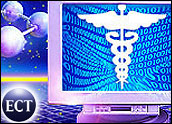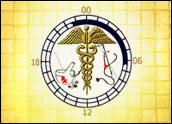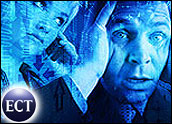
Connextions Health, a branch of fulfillment and e-business service outsourcer Connextions, has begun selling healthcare organizations a CRM product that lets them proactively anticipate and prevent patients’ problems before those problems escalate into significant events.
One customer that has signed on to Connextions’ healthcare CRM offering is Blue Cross Blue Shield of Florida (BCBSF). Now, when patients contact the insurance provider, they can speak directly with a nurse about their ailment.
Connextions began its relationship with BCBSF by assisting the insurance provider with Web sales. Through this initial effort, Connextions cut application processing time by 30 percent and reduced agent application processing time by 50 percent. Now, with the appointment of Dr. Tom Young, M.D., to senior vice president and corporate medical director, the company’s CRM offering is integrating disease management services for the healthcare industry.
“You can help a patient pick the right health insurance product, introduce it and show him how to use it with a one-stop customer-service center,” Dr. Young said. “Using information gleaned from a single source, you have a database that helps find better health solutions.”
CRM Targets Patient Needs
Additionally, healthcare organizations’ using Connextions’ CRM product now can send reminders regarding preventative solutions. “Over 12 months, we’ve developed educational processes … for specific illnesses,” Young said. “Patients can contact their team nurse at the same telephone number as customer service and claims payment. We can deliver outbound case management services for illnesses like diabetes and asthma, to help the plan lower costs by improving patient outcome.”
Meanwhile, Connextions’ Hero home monitoring device provides back-end service. It communicates with patients to remind them to take pills and helps evaluate and monitor patients daily in an unobtrusive, highly configurable method.
All information is delivered from the Hero system to a doctor through a visit planner. The doctor then can review it during an appointment with a patient, be reminded of guidelines, make decisions, provide an update on what happened since the patient’s last visit and include information from anywhere along the healthcare chain.
No More Data Islands
With the Connextions system, patient data is no longer siloed, so eligibility, claims management, doctors’ records and case management nurses’ records are all grouped together. This aggregation helps care providers target specific symptoms and problems, such as finding early-onset depression to help the patient and the employer by getting the person back to work.
As Dr. Young told CRM Buyer: “The good thing about this solution, tailored for each health plan, is this is built on a software platform, so we can add particular questions preferred by doctors and have it accessible to the nurses within an hour. It doesn’t impact legacy systems, so companies don’t need significant changes made.”
ROI Improving
ROI for healthcare providers using Connextions’ CRM solution revolves around three basic areas, according to Dr. Young: improved customer service; better access; and more efficiency, which improves loyalty and drives a better bottom line.
“When we look at health plans that improve compliance, there is return on investment in lower healthcare cost,” he noted. “When patients comply, they are less likely to need emergency room treatment and hospitalization. Home monitoring may reduce stays by 50 to 80 percent and reduce ER visits for asthma by 47 to 50 percent.
“When we reduce health plan overall costs, a dollar expenditure of 3 to 5 percent is a significant improvement,” Dr. Young added. “It changes the trend line, so the rate of rise continuously slows. You get more leverage each year, as patients are in preventative mode. After a ramp-up period, you slow the trend line, and when you can get below 10 percent, you subsequently slow the rising cost of healthcare.”
Taming Soaring Costs
He spoke of the 15 to 18 percent increases in healthcare costs when he served as medical director for Medicaid in Idaho, as well as the 15 to 20 percent cost hikes currently plaguing employers. Use of CRM technology to coordinate care and manage population health has the potential to substantively reduce that rise, dropping it into the single digits, he said.
Overall, Dr. Young noted: “My career started out as a single county doctor, and it was 35 miles away from a 12-bed hospital. This is a way to touch more people. We need to build a better patient, a healthier patient, by understanding their diseases and helping practitioners use the information well.”
This type of CRM specialization may be the next major industry trend to go mainstream. Recent research from AMR estimates the CRM market will grow to US$10.8 billion in 2004 — a $1 billion leap from 2003. While this is a much lower growth rate than that seen in the mid-1990s, companies continue to invest in customer-facing technologies.
As AMR’s Laura Preslan stated, “Priorities have shifted from Sales Force Automation (SFA), call management, and marketing automation to applying technology to improve key business processes and using the resulting data to execute.” Connextions’ efforts seem likely to strengthen healthcare business processes and help companies use the resulting data to improve the quality of healthcare.





































Social CRM
See all Social CRM